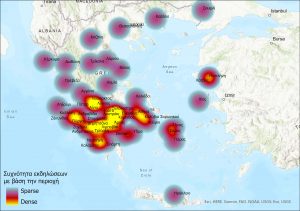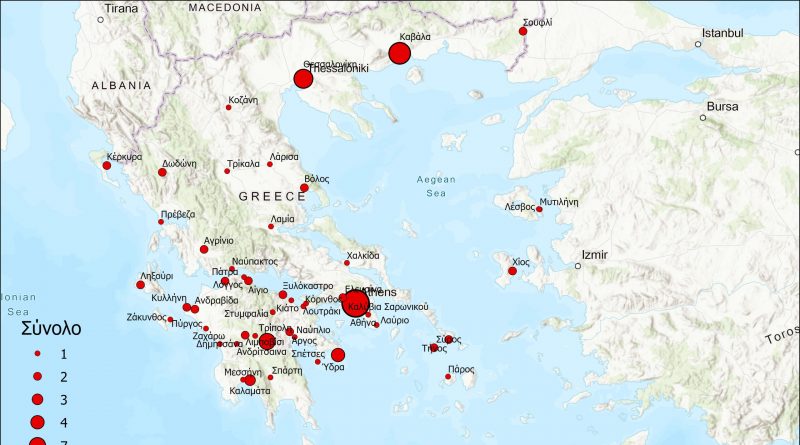Performances in Greece (and beyond)
The 200th anniversary of the declaration of the Greek Revolution was accompanied by a set of celebratory actions throughout Greece as well as in cities abroad that demonstrated a strong philhellenic spirit. Public and private bodies have already been preparing the program of actions since 2019, putting together a mosaic of activities full of symbolism.
Most of the above were, as is natural, the artistic events with themes related to the time period, the people and the events of the struggle for Greek independence. Many theater performances, concerts, dance events and other types of performing arts were held either as part of the program of the central organizing committee “Greece 2021” or individually by independent foundations. Of course, the restrictions implemented due to the pandemic on public events have led to the reconfiguration, postponement or even cancellation of some of them. For 30 of the scheduled shows, the solution was to show them online. Those that took place in real time, had, despite the difficult conditions, a great response and the audience overwhelmed indoor and outdoor venues, excited and charged by the anniversary atmosphere. Many of them were “staged” several times or presented in different parts of Greece by touring troupes.
Most theater shows, concerts, dance events and performances were given in the big urban centers and mainly in Athens. The combination of the intense interest of the private artistic bodies of the capital with the great willingness of the state bodies yielded an extraordinary set of 114 actions, a multitude of performances with particular dynamics and with all those elements that characterize popular commercial productions. These include 44 theater and opera performances, 34 musical events and concerts, 34 performances and 2 film screenings.

As far as the corresponding actions in the rest of Greece are concerned, their frequency is much lower, as 136 performances were held throughout the rest of the territory. In the second most populous city, Thessaloniki, only 5 theater performances were “staged” and 3 musical events, 3 performances and 2 film screenings were held as part of the Thessaloniki Film Festival. Of particular interest was the participation of the Philippi Festival in the celebration of 200 years since the start of the Greek Revolution with a tribute to Dionysios Solomos, a festival which gave 15 performances in the area of Kavala.
The rest of the regions of Greece seem to have had a limited presence in the preparation of anniversary events. Observing the overall picture, however, we should refer to the intense activity of the areas characterized as Old Greece, such as the Peloponnese, Central Greece and some of the Argosaronic and Cyclades islands. If we take into account that the majority of their actions took place either in locations where important events occurred at the beginning of the Revolution or in places related to protagonists of the Struggle, then this rate can be attributed to the symbolic nature of the actions.
However, the most general conclusion emerges from our commentary on the superiority of Athens in the organization of theatrical shows, concerts, dance events and performances. It is very likely that this strong difference compared to the rest of the country’s cities is mainly due to the large audience of the capital but also to the activation of important artistic institutions based there and which functioned as a nucleus during the implementation of the anniversary celebrations.
Finally, let’s mention the performances that took place outside of Greece; a theater performance in Nicosia, a musical performance in London and a performance in Zurich and Astoria, New York respectively.
Periclis Chrysafakoglou, PhD candidate at the Department of History and Ethnology, Democritus University of Thrace

